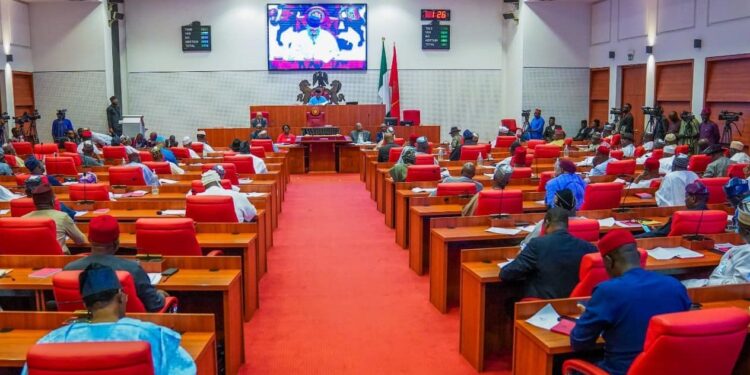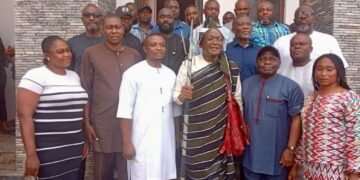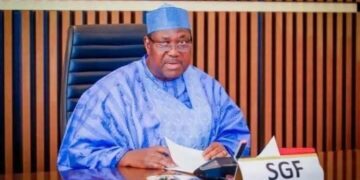The Senate has initiated steps to reinforce Nigeria’s monetary sovereignty by proposing a ban on the use of foreign currencies for payments and transactions within the country. This move aims to prohibit salaries, transactions, and payments in foreign currencies, ensuring that all workers, including expatriates, are compensated in naira. By making naira mandatory for such payments, the policy seeks to eliminate discriminatory practices and enhance confidence in the local currency, particularly for export-related transactions.
To achieve this, the upper chamber is drafting a bill to amend the Central Bank of Nigeria (CBN) Act, 2007.
Titled “A Bill for an Act to Alter the Central Bank of Nigeria Act, 2007, No. 7, to Prohibit the Use of Foreign Currencies for Remuneration and for Other Related Matters,” the bill is sponsored by the Chairman, Senate Committee on Reparations and Repatriation, Senator Ned Nwoko (PDP, Delta North).
He advocated for a ban on the use of the United States dollar and other foreign currencies as mediums of exchange and payment for goods and services in Nigeria. According to him, the widespread use and dominance of foreign currencies in the financial system have marginalized the naira, adversely affecting its value.
He expressed that his commitment to this idea stems from the belief that such a ban is crucial for Nigeria’s economic independence and growth. He highlighted the urgent need to outlaw the use of foreign currencies in the country, describing their usage—such as the dollar and Pound Sterling—as remnants of a colonial past.
Nwoko pointed out that although Nigeria gained political independence from the United Kingdom in 1960, the nation has yet to achieve true economic independence, even after six decades. The proposed bill, a significant step towards reshaping the nation’s monetary framework, seeks to restore Nigeria’s monetary sovereignty by prohibiting foreign currencies for payments and transactions within its borders.
According to Nwoko, this bill is more than a policy change—it is a strategic vision for achieving Nigeria’s economic self-reliance. By prioritizing the naira, the bill aims to lay the foundation for a fairer, more inclusive, and independent economy.
Furthermore, it challenges deeply rooted colonial-era practices, promotes industrial development, and positions Nigeria as a leader in Africa’s economic revival. Nwoko added that if enacted, the bill would usher in a transformative era for Nigeria, characterized by innovation, cultural pride, and sustainable growth grounded in the strength of its local currency.
On key policies proposed in the bill: “Ban on Foreign Currency Payments: Prohibits salaries, transactions, and payments in foreign currencies, ensuring all workers, including expatriates, are remunerated in naira. This will eliminate discriminatory practices and bolster confidence in the local currency.
“Mandatory Naira Payments for Exports: Requires crude oil and other exports to be sold exclusively in naira, compelling international buyers to purchase the currency, thereby driving its demand and value.
‘’Financial System Transition to Naira: Positions the naira as the central currency for all financial operations, reinforcing its dominance in the economy.
“Elimination of the Parallel Market: Seeks to abolish the informal currency market, which undermines the formal economy through unethical practices, such as lround-tripping by banks.
“Support for Local Manufacturers: Directs banks to provide loans at affordable interest rates to stimulate industrialization and economic growth.
‘’Reform of Foreign Reserve Practices: Advocates storing Nigeria’s foreign reserves domestically to safeguard the country’s economic sovereignty and reduce exposure to external vulnerabilities.
“Adoption of Comprehensive Policies: Proposes an integrated approach to economic development, focusing on production, financing, and local innovation to strengthen the economy.”






